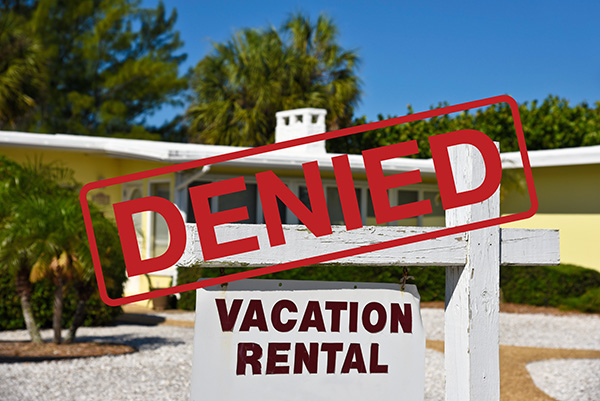
29 Aug Coming Next Summer, Empty Beaches?
City Council Severely Limits Vacation Rentals
When you live in America’s Finest City, it’s no surprise that vacation rentals surround us, especially if you live anywhere along the coast. However, we may be seeing less of them in the years to come. On Wednesday, August 1st, San Diego City Council finalized an initiative in favor of regulations that will limit vacation rentals to short-term rentals on primary residences, with a 6 to 2 vote. This includes the vacation rental hot-spots, Mission Beach and Pacific Beach. These regulations will go into effect in July 2019, if not delayed by the expected legal backlash, which we anticipate.
Under the new regulations, all secondary homes used as short term vacation rentals would be illegal. With that said, primary residences will be exempt and those renting out their guest house on the premises as a vacation rental would be required to pay transient occupancy taxes, local tourism taxes, and an affordable housing fee. Airbnb, and other rental sites such as HomeAway and VRBO, face stringent penalties for allowing rentals that are not registered with the city. The combination of these varying factors will create an immediate decrease in the supply of vacation rentals and the few that would still exist would need to raise prices to make up for the newly instated fees.
While we may not love heavier traffic on the 5, the fact is that tourism fuels San Diego’s economy. Think not? Check out these numbers:
- There are an estimated 11,000 vacation rentals in San Diego which will bring in approximately $72 million dollars in spending to the region this summer, according to Airbnb.
- According to a report released by this vacation rental company, 15 percent of its hosts in San Diego are teachers and they earned an extra $2.7 million last year. More than 40 percent of that total, some $1.1 million, came from short-term rentals in the summer — June through August.
That is a lot of cash flow!
So what does this all mean for San Diego? Well, here is what we can anticipate:
- A possible decrease in tourism
- Loss of revenue for the city and local businesses
- Loss of revenue for vacation rental owners
- Loss of affordable “home-style vacations”
- A possible surge of inventory hitting the resale market which could weaken values overall
When you live in America’s Finest City, it’s no surprise that vacation rentals surround us, especially if you live anywhere along the coast. However, we may be seeing less of them in the years to come. On Wednesday, August 1st, San Diego City Council finalized an initiative in favor of regulations that will limit vacation rentals to short-term rentals on primary residences, with a 6 to 2 vote. This includes the vacation rental hot-spots, Mission Beach and Pacific Beach. These regulations will go into effect in July 2019, if not delayed by the expected legal backlash, which we anticipate.
Under the new regulations, all secondary homes used as short term vacation rentals would be illegal. With that said, primary residences will be exempt and those renting out their guest house on the premises as a vacation rental would be required to pay transient occupancy taxes, local tourism taxes, and an affordable housing fee. Airbnb, and other rental sites such as HomeAway and VRBO, face stringent penalties for allowing rentals that are not registered with the city. The combination of these varying factors will create an immediate decrease in the supply of vacation rentals and the few that would still exist would need to raise prices to make up for the newly instated fees.
While we may not love heavier traffic on the 5, the fact is that tourism fuels San Diego’s economy. Think not? Check out these numbers:
- There are an estimated 11,000 vacation rentals in San Diego which will bring in approximately $72 million dollars in spending to the region this summer, according to Airbnb.
- According to a report released by this vacation rental company, 15 percent of its hosts in San Diego are teachers and they earned an extra $2.7 million last year. More than 40 percent of that total, some $1.1 million, came from short-term rentals in the summer — June through August.
That is a lot of cash flow!
So what does this all mean for San Diego? Well, here is what we can anticipate:
- A possible decrease in tourism
- Loss of revenue for the city and local businesses
- Loss of revenue for vacation rental owners
- Loss of affordable “home-style vacations”
- A possible surge of inventory hitting the resale market which could weaken values overall
Some might argue that there are several positives to these new regulations, such as quieter neighborhoods, and more housing for San Diego residents. However, some fear that these new regulations may drive vacation rentals underground. We enjoy them when we travel abroad, don’t we want the same for the tourists that visit here?



